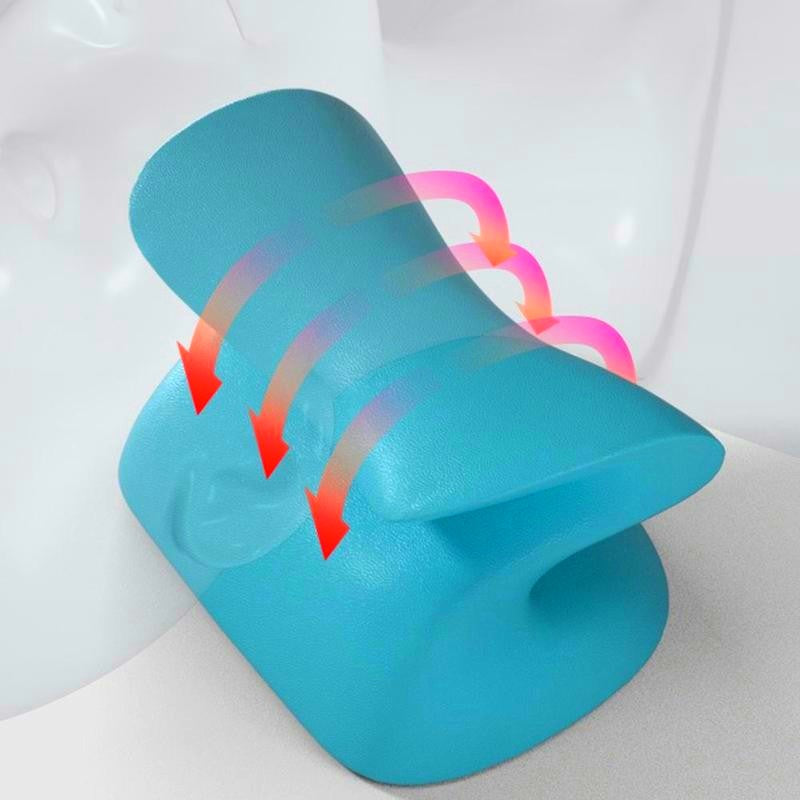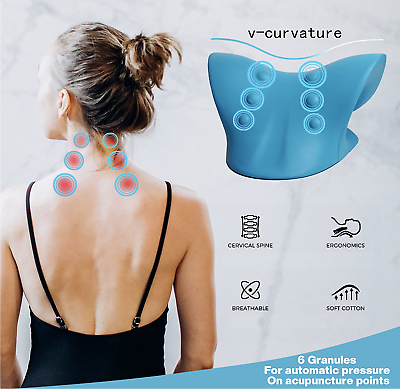The Influence of Anxiety on Neck Discomfort: Methods for Reducing Stress and Discomfort
In today's busy globe, it's no secret that stress has ended up being a common aspect in the beginning and worsening of neck discomfort. Join us on a trip to untangle the influence of stress and anxiety on neck discomfort and uncover effective ways to alleviate discomfort and improve general high quality of life.
Comprehending Stress-Related Neck Discomfort
Stress-related neck discomfort can materialize as tension, stiffness, or discomfort in the neck and shoulder location. The connection between tension and neck pain lies in the body's physical action to stress and anxiety, which can result in muscle tension and tightness in the neck muscle mass.

Identifying Common Stress Areas
Often experienced by individuals under stress and anxiety, tension areas in the body can provide beneficial understandings into the physical manifestations of emotional stress. One typical tension location is the neck, where stress often shows up literally. Stress headaches, rigid neck muscular tissues, and restricted variety of activity are common signs of stress-related neck stress. The shoulders are another typical location where stress accumulates. Anxiety can create the muscles in the shoulders to tighten, causing pain and pain. Furthermore, the top back is vulnerable to stress build-up, especially in individuals that experience persistent stress. Poor position and long term resting can exacerbate tension in this area. The jaw is additionally a common location for stress-related tension, as lots of individuals squeeze their jaw or grind their teeth when stressed. Recognizing these usual stress locations can aid individuals recognize the physical signs of tension and take steps to address them before they intensify into chronic pain or discomfort.
Applying Leisure Strategies
Relaxation methods are beneficial tools for decreasing neck discomfort caused by stress and anxiety. Additionally, activities like yoga exercise and tai chi incorporate both physical activity and relaxation, making them reliable practices for decreasing anxiety and neck discomfort. By incorporating these leisure strategies into your day-to-day regimen, you can assist take care of stress levels, lower tension in the neck, and minimize pain associated with stress-induced neck pain.
Integrating Self-Care Practices
Integrating self-care methods is crucial for maintaining general wellness and handling stress-related neck discomfort properly. Engaging in regular exercise, such as mild extending workouts or yoga exercise, can assist relieve stress in the neck and shoulders. Practicing great pose throughout the day and taking regular breaks from extended resting or display time can likewise stop pressure on the neck muscular tissues.
In addition, focusing on ample rest and developing a consistent sleep routine can add significantly to reducing stress levels and promoting leisure. Developing a relaxing going to bed routine, such as reading a book or discover this taking a warm bathroom, can help prepare the mind and body for restful rest. Furthermore, preserving a well balanced diet plan abundant in nutrients and remaining moisturized can support total wellness and reduce swelling that might exacerbate neck pain.
Including mindfulness techniques, such as deep breathing exercises or meditation, can aid handle stress and advertise relaxation. Taking time for oneself, taking part in pastimes, and setting borders to secure individual time are likewise important facets of self-care that can contribute to lowering anxiety and link easing neck pain.
Looking For Expert Aid
Exactly how can individuals properly deal with relentless neck pain that is influencing their life and well-being? Looking for professional assistance can be an important action in handling and reducing neck discomfort. Consulting with healthcare specialists such as chiropractic doctors, physiotherapists, or orthopedic experts can give useful understandings and customized therapy plans. These experts can perform comprehensive analyses to diagnose the underlying causes of neck discomfort and advise suitable treatments.
Chiropractic specialists focus on spine adjustment techniques to improve positioning and minimize stress in the neck location. Physiotherapists supply targeted exercises and stretches to enhance muscular tissues, improve flexibility, and improve general neck feature. Orthopedic specialists can offer innovative clinical interventions such as injections or surgical choices for extreme instances of neck discomfort.
Conclusion

Stress-related neck discomfort can show up as stress, rigidity, or pain in the neck and shoulder location. The link in between stress and anxiety and neck navigate to this site discomfort exists in the body's physical feedback to stress, which can result in muscle stress and rigidity in the neck muscular tissues. Stress frustrations, tight neck muscular tissues, and limited array of movement are typical signs of stress-related neck tension. By integrating these relaxation techniques into your daily regimen, you can aid take care of stress and anxiety degrees, minimize tension in the neck, and ease discomfort associated with stress-induced neck pain.
